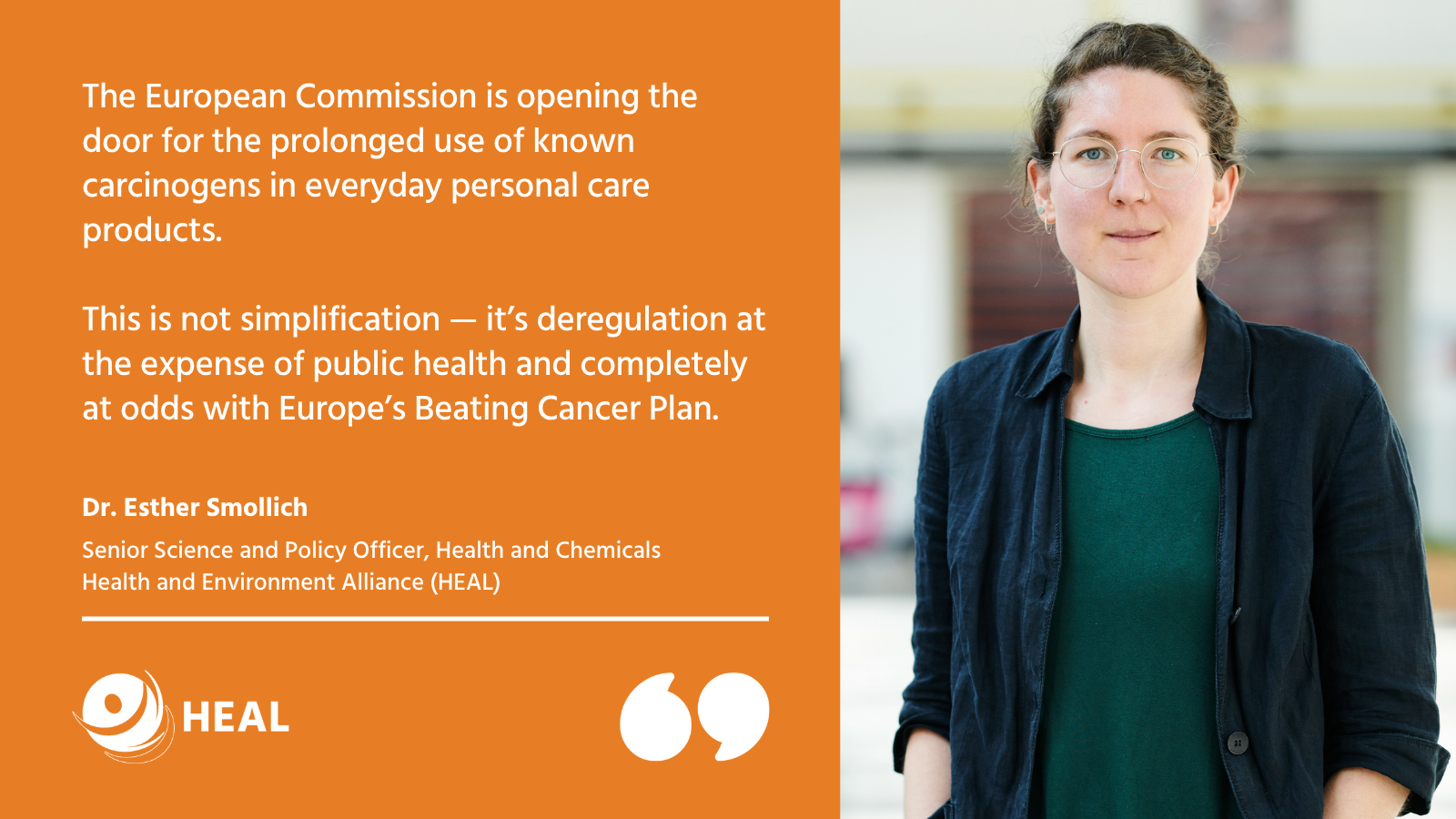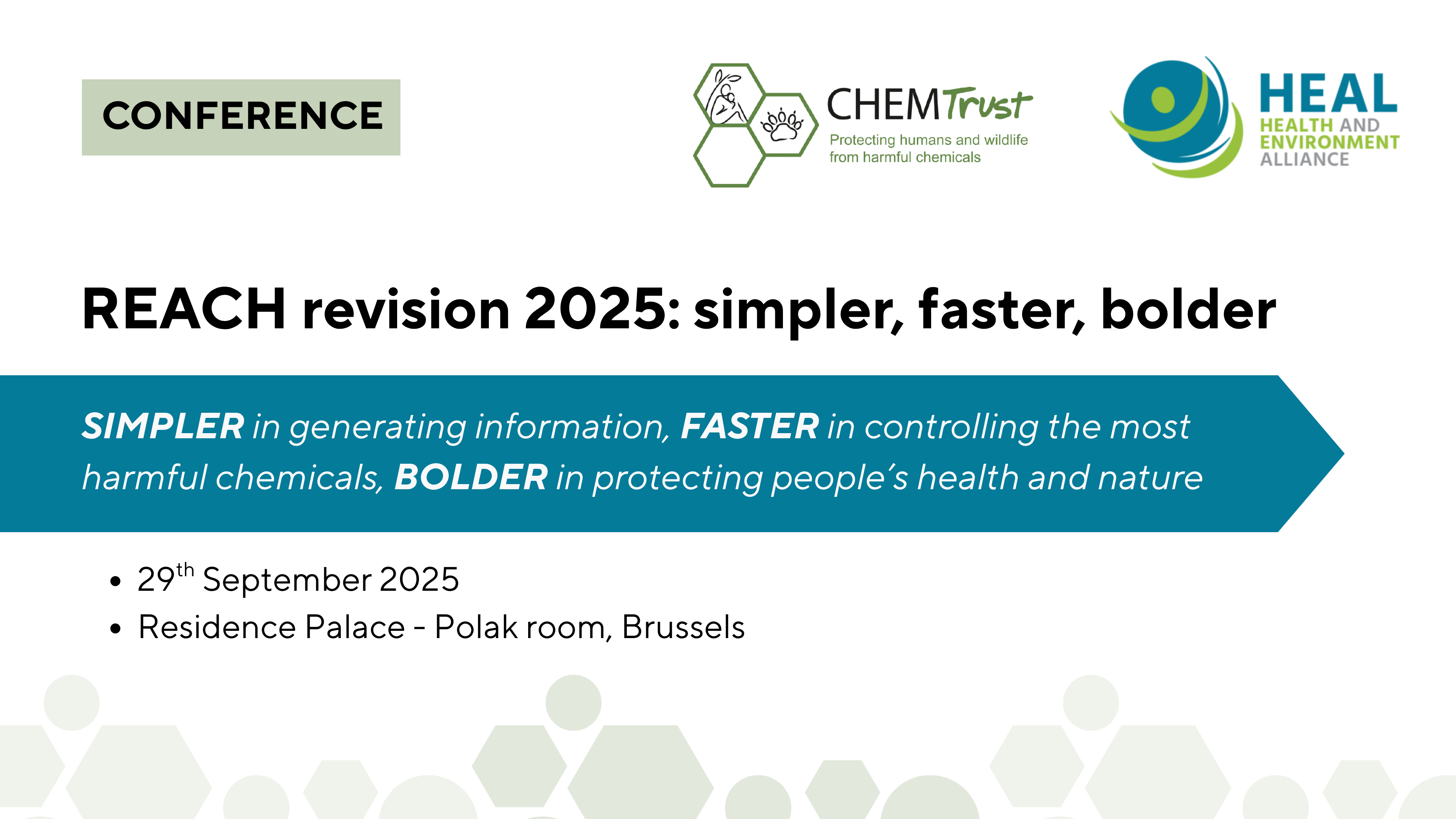Today’s publication of the European Commission’s chemicals omnibus confirms serious concerns: if pushed through the proposal will significantly weaken protections in the Cosmetic Products Regulation, allowing the prolonged use of carcinogens and other harmful chemicals in personal care products.
Brussels, 7 March 2013 – The health costs of coal-fired power stations add a financial burden to the European population of up to €42.8 billion a year. The assessment is published today in a major new report from the Health and Environment Alliance (HEAL) (1).
The report, entitled ‘The unpaid health bill: How coal power plants make us sick’ (2), provides the first-ever calculation of the effects of coal-fired power generation on chronic lung disease and some heart conditions.
Coal power generation in Poland is associated with the highest health impacts as well as health costs, estimated at over €8 billion per year. Romania and Germany both rank second with more than €6 billion in health costs each (3).
“Our report offers the scientific evidence on the health impacts of coal and provides vital information from a health perspective that should be taken into account when determining energy policy,” says Genon Jensen, Executive Director at HEAL, which brings together more than 70 networks and groups in 26 European countries.
“The findings are particularly worrying given that the use of coal is now rising after years of decline. The startlingly high costs to human health should trigger a major rethink on EU energy policy,” adds Ms Jensen.
Two-fold burden
The report quotes public health experts who express concerns that carbon emissions associated with coal use will contribute to climate change and add to future public health problems – on top of the serious consequences of coal burning we are already seeing today.
The report launch marks the beginning of a coal and health campaign in which HEAL will work closely with medical, health and climate advocacy groups, especially in countries where coal is a particular threat to health.
In coming months, the Standing Committee of European Doctors (CPME), which has 27 members representing medical doctors in EU countries, will be raising awareness of the risks of coal burning as part of its work underlining the importance of cleaner air. 2013 as the EU Year of Air provides strong opportunities to improve public health as the Commission gears up to review EU air legislation and put forward proposals later in the year.
“European doctors know air pollution to be an important risk factor for health and the CPME has a long-standing interest in this topic. Health professionals are committed to bringing new evidence-based information to the public as well as to decision makers and using their voice to bring about policy changes,” said Birgit Beger, Secretary General, Standing Committee of European Doctors (CPME).
Mitigating climate change
On top of the benefits to health from cleaner air, the report also highlights how stronger regulation of coal would help mitigate climate change. Coal is the most carbon-intensive energy source in Europe – responsible for approximately 20% of carbon emissions. Controlling long-term temperature rises and avoiding heat waves are particularly important for vulnerable groups, such as young children and older people and anyone with an existing respiratory or heart condition.
MEP and medical doctor, Peter Liese recognises coal as both an immediate and a long-term threat to public health because of its contribution to climate change: “The EU has committed to protect public health from air pollution as well as from climate change impacts. As the use of coal in Europe is currently increasing, there is a significant threat to people’s health in the short and long term.”
Abandoning coal: A win-win for public health and the climate
HEAL’s report recommends that no new coal plants should be built and that Europe should abandon coal by 2040 for better public health.
“If accepted, this approach would avoid the unnecessary respiratory and heart problems associated with exposure to coal pollutants in the air. It would offer longer term health benefits by mitigating climate change. Opting for alternatives to coal would also put right a current injustice in which Europeans are made to shoulder the burden of an unpaid health bill caused by coal,” said Ms Jensen.
ENDS
Press release FR – ES – RO – DU – IT
Notes to Editors
1. The Health and Environment Alliance (HEAL) is a leading European not-for-profit organisation addressing how the environment affects health in the European Union (EU). We demonstrate how policy changes can help protect health and enhance people’s quality of life. HEAL has more than 65 member organisations, representing networks of health professionals, non-profit health insurers, patients, citizens, women, youth and environmental experts working at the international, EU, national and local level. Together, we help to bring independent expertise and evidence from the health community to different decision-making processes.
2. Link to report on website www.env-health.org/unpaidhealthbill. The evaluation in the new report is based on a calculation of the costs associated with premature deaths resulting from exposure to coal-related air pollution, medical visits, hospitalisations, medication and reduced activity, including working days lost.
3. Economic evaluations of health impacts by source country:
Annual health costs associated with coal power generation per country in million Euros (2009 data)
Country Total costs (million Euro), upper bound estimate
Poland – 8,219
Romania – 6,409
Germany – 6,385
Bulgaria – 4,629
Greece – 4,089
UK – 3,682
Czech Republic – 2,842
France – 1,879
Slovakia – 925
Italy – 857
Spain – 827
Estonia – 445
Netherlands – 386
Hungary – 268
Slovenia – 228
Ireland – 201
Finland – 169
Belgium – 134
Portugal – 90
Austria – 74
Denmark – 63
Sweden – 7
Latvia – 3
EU27 42,811
Turkey – 6,689
Serbia – 4,987
Croatia – 243
TOTAL 54,730



